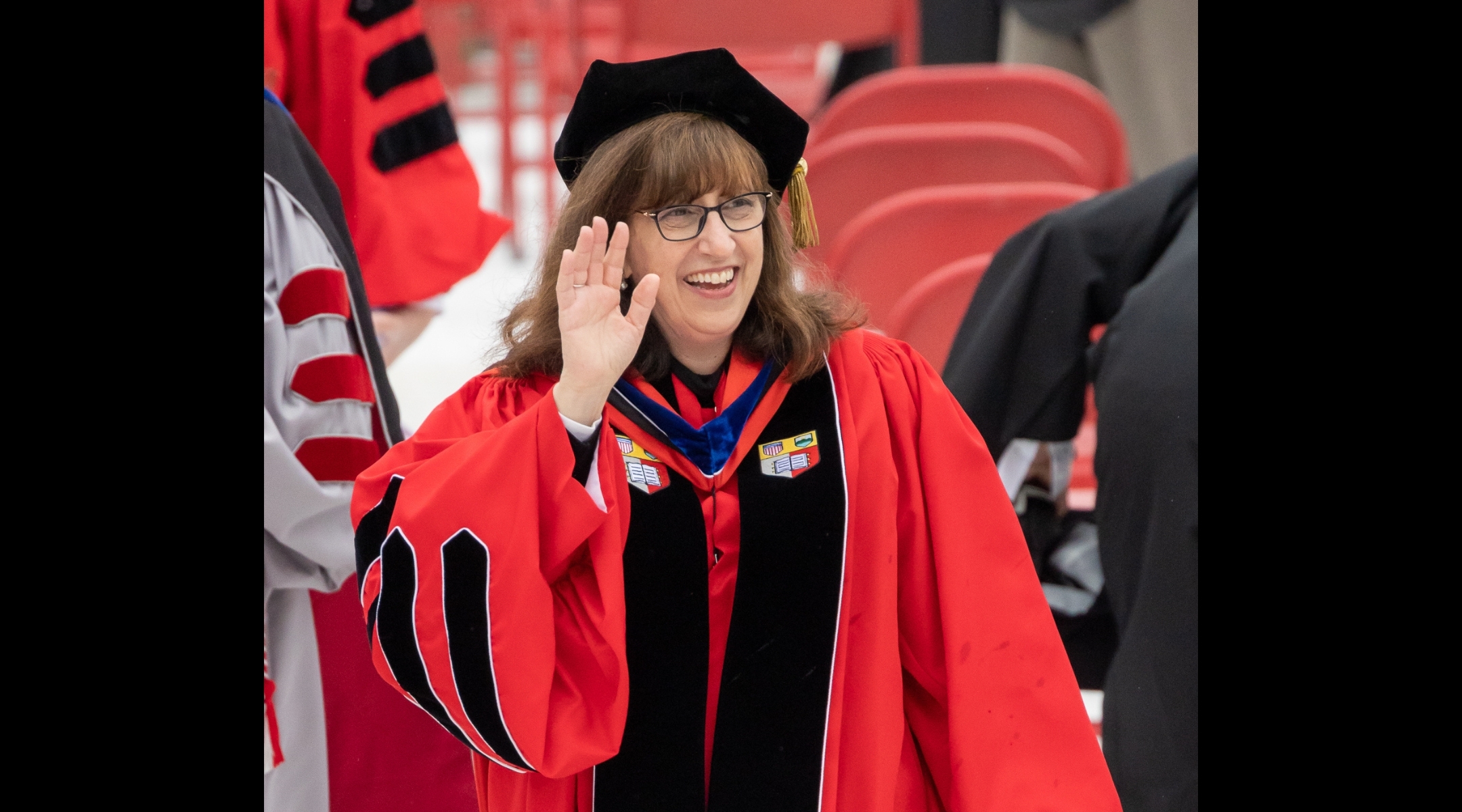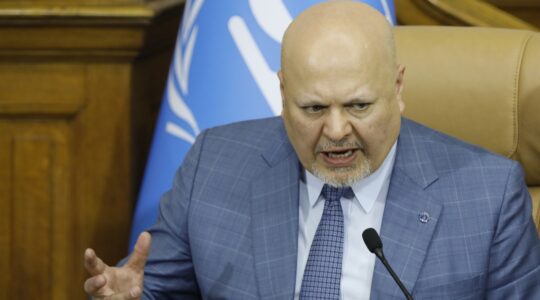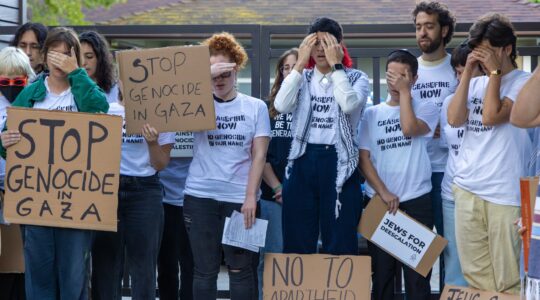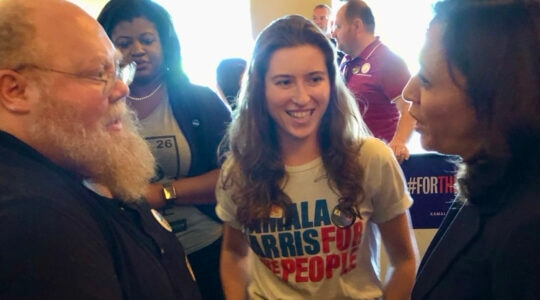(JTA) — Cornell University president Martha E. Pollack will step down from her position next month, the third Ivy League leader to announce her resignation amid fierce campus debate surrounding antisemitism and protests over the Israel-Hamas war.
In an email sent to the Cornell community, Pollack cited the “enormous, unexpected challenges” posed by the war and incidents of antisemitism and Islamophobia. She emphasized that the decision to retire from the position was her own.
“Local and world events have caused enormous pain for students of many backgrounds, including our Jewish and Israeli students, as well as our Arab, Palestinian, and Muslim students,” she wrote. “We have been vigilant in working to ensure the safety and well-being of all members of our community from all backgrounds, work I’ve been dedicated to long before the events of the past year.”
Pollack’s announcement follows the resignations in recent months of the presidents of the University of Pennsylvania and Harvard University. Both stepped down in the wake of a congressional hearing in December where they declined to say that calling for the genocide of Jews violates school rules.
Pollack has not testified before Congress since the outbreak of the war on Oct. 7. But weeks after it began, she had to address a high-profile instance of campus antisemitism and has since faced pressure from a former trustee to resign.
In October, a student made multiple death threats against his Jewish peers on campus, and posted that he would “shoot up” the kosher dining hall. The school canceled classes in order to hold a “community day,” and the student was removed from the school and pleaded guilty in April.
“We will not tolerate antisemitism at Cornell,” Pollack wrote at the time in a message to the campus community. “The virulence and destructiveness of antisemitism is real and deeply impacting our Jewish students faculty and staff, as well as the entire Cornell community. This incident highlights the need to combat the forces that are dividing us and driving us toward hate.”
That same month, history professor Russell Rickford said he was “exhilarated” by Hamas’ Oct. 7 attack on Israel. He later apologized and took a leave of absence.
And in April, Cornell was one of dozens of schools where pro-Palestinian students set up an encampment protest. The school suspended several of the protesters.
In January, former Cornell trustee Jon Lindseth called on Pollack to resign due to her failure to adequately address antisemitism — something he blamed on her embrace of policies for Diversity, Equity and Inclusion, or DEI.
In his letter to the school’s trustees, Lindseth condemned what he called Pollack’s “shameful recent response to clear acts of terrorism and antisemitism compared with her swift and strong response to the George Floyd tragedy” in 2020, which sparked a national reckoning over racism and policing.
“President Pollack’s failure to act with conviction and moral clarity was a watershed moment as I watched the harmful effects of DEI programming play out on a whole generation of Cornellians,” he added.
At the time, the trustees stood by Pollack. But she wrote in her letter that for months she has been weighing the decision to step down after seven years in the job.
“Indeed, I began deliberating about this last fall, and made the decision over the December break,” she added. “But three times, as I was ready to act on it, I had to pause because of events on our and/or on other campuses.”
Provost Michael I. Kotlikoff will serve a two-year term as interim president beginning on July 1.
During her term as president, Cornell University opened the Cornell Tech campus on Roosevelt Island in New York, a graduate research campus in collaboration with the Technion in Israel.
For the academic year of 2023-2024, Pollack initiated the first-ever “theme year” at Cornell. This year’s theme was freedom of expression, and her letter on Thursday encouraged students to “develop more capacity to seek out different perspectives and be willing to listen to those with whom we differ, doing so with intellectual curiosity and an open mind; at the same time, we must always consider the impact of what we say to one another; and we must thoughtfully engage in debate.”






